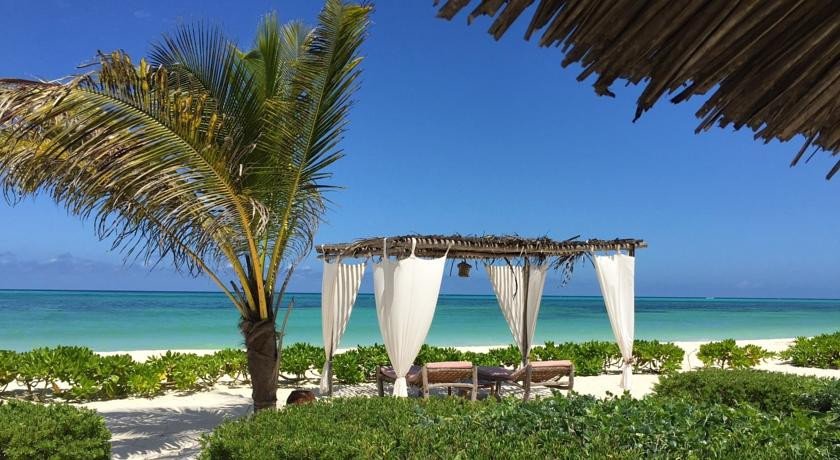
Tours of Zanzibar Island are a rewarding experience with cultural sights and natural beauty on the itinerary. There are a number of quality local tour operators who can arrange visits to points of interest with knowledgeable, and often multilingual, guides. Popular tours of Zanzibar Island include:
This tour takes you through fabled Stone Town, where history appears to stand still. With visits to the House of Wonders, the Palace Museum (People’s Palace), Dr Livingstone’s House and the Arab Fort amongst others, it is a fascinating look at the essence of Zanzibar. You will see Zanzibar’s bustling market, winding alleyways, ornately carved and studded doors, two cathedrals and countless mosques! A trip to the site of Sultan Barghash’s harem at Marahubi should also be included and rounds off an insight into Zanzibar’s huge history and vibrant culture. Stone Town has some excellent gifts shops with plenty of souvenirs and handicrafts to choose from.
The history of Zanzibar would be incomplete without the cloves, nutmeg, cinnamon, pepper and many other spices which brought the Sultans of Oman and the beginnings of the infamous slave trade. They can be seen in the plantations just outside Zanzibar town, and a good tour includes opportunities to dazzle the senses with fresh spices. A detailed description is given about a variety of spices, and their uses in cooking and cosmetics. Visitors will be fascinated by the sheer number of spices produced and their incredible value for many ailments. This is also the cheapest place to purchase spices and spice oils.
The Jozani Natural Forest Reserve is located in the central east region of Zanzibar island and is home to the rare Red Colobus Monkey (pictured opposite), which is endemic to Zanzibar. These monkeys are full of character, and roam freely. They can also be seen at very close quarters just outside the reserve’s perimeter and are incredibly photogenic. Jozani is home to other species including Syke’s monkeys, small buck and bush pigs. The elusive Zanzibar leopard (last sited several years ago) is said to feed here at night – perhaps this is why the reserve is only open during the day?! Jozani has an excellent nature trail and the guides are well trained and informative.
Tours to the unspoilt north coast always end up at Ras Nungwi, a sleepy fishing village on the northern tip of Zanzibar Island. It is the dhow building capital of Zanzibar, so you will be able to see the traditional methods of dhow construction in action. This area of Zanzibar has some fantastic beaches and nearby coral reefs which are ideal for diving and snorkeling. The local villagers have built a turtle sanctuary where injured turtles and other marine animals are nursed back to health before being released back into the warm waters of the Indian Ocean.
Situated on the southern point of the island, Kizimkazi fishing village is home to several schools of bottle-nosed dolphins which can often be sighted following a short boat trip from the village. If you are lucky, you may be able to swim quite close to the dolphins which can be a very rewarding experience. Kizimkazi is also the site of a 12th century mosque, the earliest evidence of Islam in East Africa, and is thus worth a visit for both natural and cultural reasons.
Once the site of a goal for misbehaving slaves, the island lies just off the old stone town. It is fringed with a beautiful coral reef, ideal for snorkeling, and has a lovely white beach for sun-bathing.
It is also home to a family of giant tortoises, imported from the Seychelles in the late 19th century. This island is ideal for a day-trip with refreshments available throughout the day. It also has a small restaurant where you can enjoy freshly caught fish.